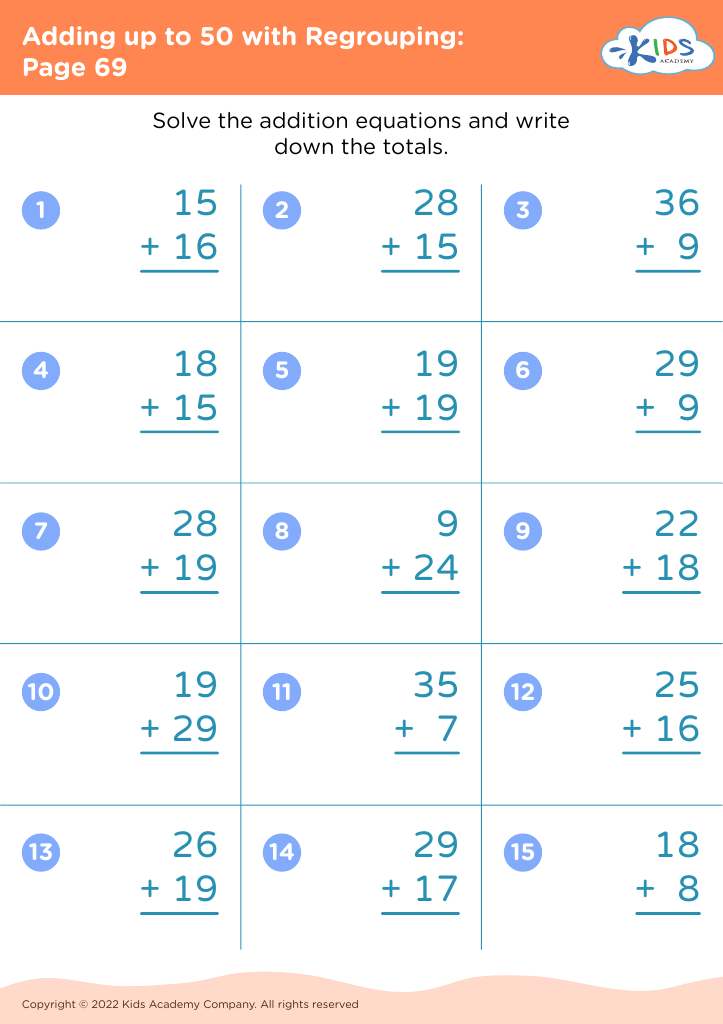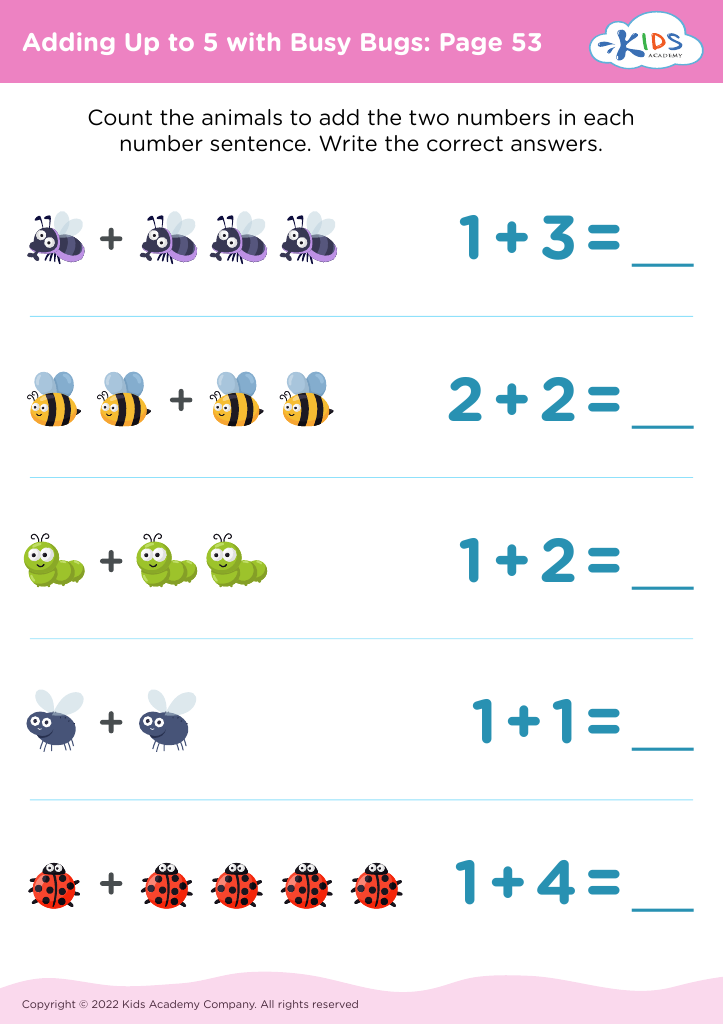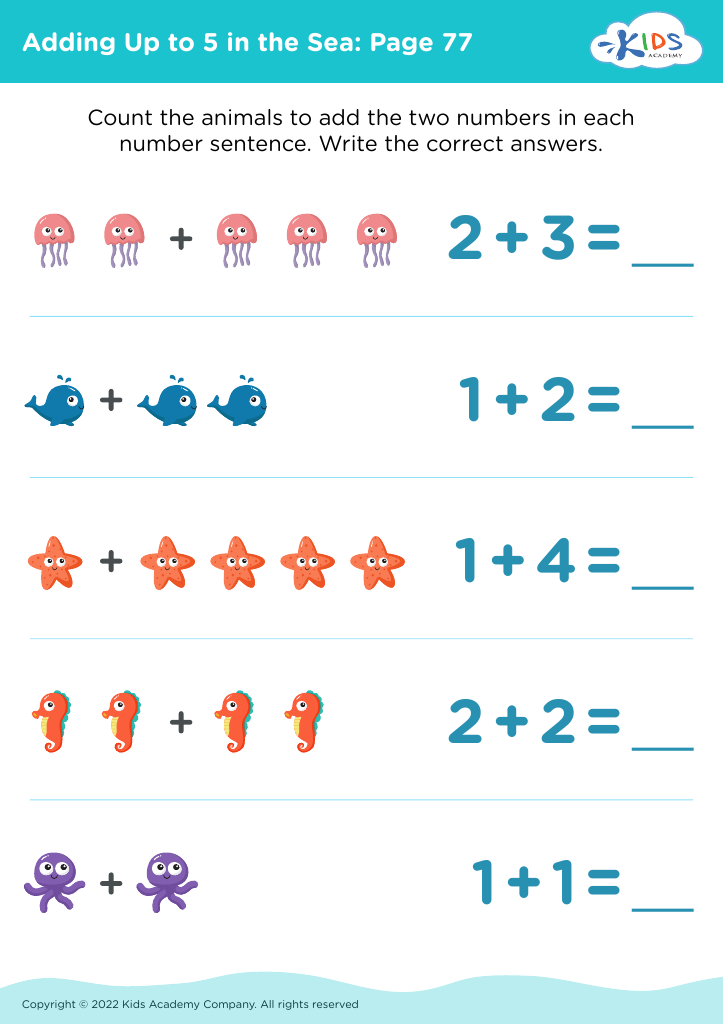Introduction to mathematics Addition Worksheets for Ages 3-7
3 filtered results
-
From - To
Welcome to our "Introduction to Mathematics Addition Worksheets" designed for children ages 3-7! These engaging, printable worksheets help young learners grasp the fundamentals of addition through colorful illustrations and interactive exercises. Each worksheet is structured to develop essential math skills while keeping learning fun and enjoyable. Kids will explore basic concepts like counting, number recognition, and simple equations, making early math learning both effective and exciting. Whether at home or in the classroom, our addition worksheets provide a solid foundation in mathematics. Start your child's math journey today and watch their confidence grow with every completed page!
Introducing mathematics, particularly addition, to children aged 3-7 is crucial for their early cognitive development and foundational learning. During these formative years, children are highly receptive to concepts that form the basis of later mathematical understanding. Early exposure to addition aids in developing their ability to work with numbers, enhancing their problem-solving skills, and nurturing logical thinking.
Teaching addition in an engaging and playful manner not only makes learning enjoyable but also fosters a positive attitude toward mathematics. This foundational experience can build confidence, encouraging children to take on more complex mathematical concepts as they grow. Understanding addition helps children grasp essential skills like counting, comparing, and recognizing patterns, which are vital in various everyday contexts.
Furthermore, involvement from parents and teachers creates a supportive learning environment, enhancing children’s social and emotional skills. Engaging activities, such as games, storytelling, and hands-on experiences, make learning relatable and fun, reinforcing their interest in mathematics.
Overall, caring about the introduction to addition equips children with essential skills for academic success, better prepares them for future challenges, and helps foster a lifelong love of learning. Investing time and resources in this foundational education pays off in countless ways throughout their educational journey.



















